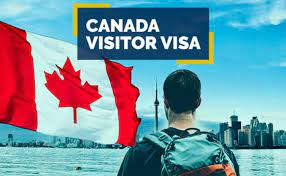Introduction
Canada is renowned for its stunning landscapes, vibrant cities, and welcoming people. For travelers looking to explore its wonders, a Canadian Visitor Visa, also known as a Temporary Resident Visa (TRV), is often required. This visa allows individuals from around the world to visit Canada for a temporary stay, whether it’s for tourism, business, or to visit family and friends. In this article, we will delve into the various aspects of the Canadian Visitor Visa application process, requirements, and tips to increase your chances of securing one.
Table of Contents:
Understanding the Canadian Visitor Visa
Purpose of the Visitor Visa
Duration of Stay
Single Entry vs. Multiple Entry Visas
Eligibility Criteria for a Canadian Visitor Visa
Basic Requirements
Financial Sufficiency
Ties to Your Home Country
Health and Character Requirements
The Canadian Visitor Visa Application Process
Gathering Required Documents
Completing the Application Form
Paying the Application Fee
Submitting the Application
Processing Time and Decision
Typical Processing Time
Factors Affecting Processing Time
Receiving the Visa Decision
Tips for a Successful Canadian Visitor Visa Application
Plan Ahead
Provide Genuine Documentation
Demonstrate Strong Ties to Your Home Country
Proof of Travel Itinerary and Accommodation
Show Financial Capability
Honesty and Consistency
Handling Visa Denials
Common Reasons for Visa Denials
Reapplying After a Denial
Seeking Assistance from a Professional
Special Circumstances
Traveling with Family Members
Inviting Relatives or Friends to Canada
Business Visitors
Extending Your Stay in Canada
Applying for a Visa Extension
Understanding the Super Visa for Parents and Grandparents
Frequently Asked Questions (FAQs)
What should I do if my passport expires before my visa does?
Can I work or study in Canada with a Visitor Visa?
Can I apply for permanent residency while on a Visitor Visa?
Can I enter Canada with a criminal record?
1. Understanding the Canadian Visitor Visa:
Purpose of the Visitor Visa:
The Canadian Visitor Visa allows foreign nationals to enter Canada for temporary purposes, such as tourism, visiting family or friends, attending business meetings or conferences, or engaging in short-term studies. It is essential to note that a visitor visa does not permit visitors to work or study in Canada, and engaging in such activities without the appropriate authorization may lead to serious consequences.
Duration of Stay:
When granted a Canadian Visitor Visa, the visa officer will specify the allowed duration of your stay. Generally, visitors are granted stays of up to six months. However, this can vary depending on the visa officer’s assessment of your application and other factors.
Single Entry vs. Multiple Entry Visas
A single-entry visa allows you to enter Canada once during the authorized period. Once you leave Canada, the visa becomes invalid. In contrast, a multiple-entry visa permits you to enter Canada multiple times during the visa’s validity period without the need for reapplying each time. Multiple-entry visas are typically granted for longer periods and are more suitable for frequent travelers to Canada.
2. Eligibility Criteria for a Canadian Visitor Visa:
Basic Requirements:
To be eligible for a Canadian Visitor Visa, you must meet some fundamental criteria, including:
a) A valid passport: Your passport should be valid for the duration of your intended stay.
b) Purpose of visit: You must have a clear and legitimate reason for visiting Canada.
c) Intention to leave: You must demonstrate that you have sufficient ties to your home country, such as family, property, employment, or financial assets, which will compel you to return after your temporary stay in Canada.
Financial Sufficiency:
One crucial aspect of the visa application is proving that you have enough funds to cover your travel expenses, including transportation, accommodation, and daily expenses while in Canada. The specific amount required may vary depending on your length of stay and planned activities.
Ties to Your Home Country:
Visa officers will assess your ties to your home country to ensure that you have strong incentives to return after your visit to Canada. Factors such as family relationships, property ownership, steady employment, or educational commitments are taken into consideration.
Health and Character Requirements:
Applicants must undergo a medical examination if required, to ensure they meet the health standards set by Immigration, Refugees, and Citizenship Canada (IRCC). Additionally, individuals with certain criminal convictions or a history of non-compliance with immigration laws may be deemed inadmissible to Canada.
3. The Canadian Visitor Visa Application Process:
Gathering Required Documents:
Before starting the application process, gather all necessary documents to support your application. Commonly required documents include:
a) Valid passport
b) Passport-sized photographs
c) Proof of financial sufficiency (bank statements, pay stubs, etc.)
d) Travel itinerary and accommodation details
e) Letter of invitation (if applicable)
f) Employment letter (if employed)
g) Family documents (marriage certificates, birth certificates, etc.)
Completing the Application Form:
The next step is to complete the Visitor Visa application form, which can be done online or on paper. Ensure that all information provided is accurate and consistent with the supporting documents.
Paying the Application Fee:
Applicants must pay the required processing fee, which is non-refundable, regardless of the outcome of the application. The fee can be paid online through the official IRCC website or through a local Visa Application Center (VAC).
Submitting the Application:
Once you have completed the form and paid the fee, submit your application either online through the IRCC website or in-person at the nearest VAC or Canadian embassy or consulate. Ensure that you submit all the required documents as missing or incomplete information can lead to processing delays or visa refusals.
4. Processing Time and Decision:
Typical Processing Time:
The processing time for a Canadian Visitor Visa can vary depending on several factors, including the volume of applications received at the time, your home country, and the time of year. Typically, it takes several weeks to a few months for a decision to be made.
Factors Affecting Processing Time:
Several factors can influence the processing time of your application, such as the complexity of your case, the accuracy and completeness of your documentation, and the overall demand for visas.
Receiving the Visa Decision:
Once a decision has been made on your application, you will be notified of the result. If your visa is approved, you will receive a Temporary Resident Visa (TRV) affixed to your passport, if required.
5. Tips for a Successful Canadian Visitor Visa Application:
Plan Ahead:
Start the application process well in advance of your intended travel dates to allow for sufficient processing time.
Provide Genuine Documentation:
Ensure all documents provided are genuine, accurate, and up-to-date. Any false information or forged documents can lead to visa refusal and may result in future immigration complications.
Demonstrate Strong Ties to Your Home Country:
Highlight your commitments and ties to your home country to show that















